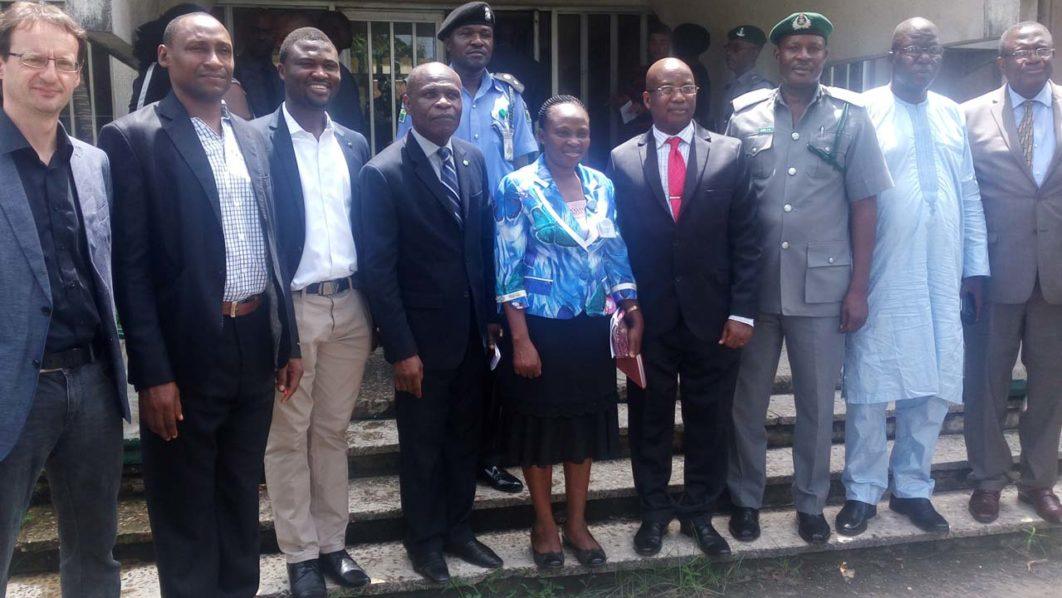 Amid the challenge of housing the poorest citizens at a reasonable cost, the findings of a representative household survey in FCT demand affordable housing and related housing finance. The report argues that the potential opportunities in the Abuja market are significant and deserve increasing attention
Amid the challenge of housing the poorest citizens at a reasonable cost, the findings of a representative household survey in FCT demand affordable housing and related housing finance. The report argues that the potential opportunities in the Abuja market are significant and deserve increasing attention
The lull in activities in the housing industry following the economic recession is apparently blowing over, with fresh facts from researchers that there is a huge demand for affordable housing opportunities in Federal Capital Territory (FCT), Abuja with an estimated gap of almost 600,000 in housing units.
The findings also noted that despite the economic recession, the prices of luxury real estate have gone up in Abuja from what they were at the last quarter of 2016 (Q4) in so many locations contrary to expectations that the price for luxury homes would drop as the demand for them is also expected to drop due to the economic situations.
Review of the price changes from 3rd quarter of 2016 to 1st quarter 2017 across top luxury locations in Abuja showed that in Maitama, a five Bedroom duplex formerly at N820 Million has slightly reduced to N818 Million while a four bedroom actually increased from N206 Million to N209 Million.
In Asokoro, a five bedroom duplex formerly N136 Million increased to N141 Million and a four bedroom increased from N91 Million to N95 Million while a five bedroom duplex in Garki increased from N257 million to N270 million, and a four bedroom actually decreased from N136 Million to N120 million.
According to the State of Abuja Housing Market Report by the Roland Igbinoba Real Foundation for Housing and Urban Development (RIRFHUD), with an estimated six million population, the Federal Capital Territory (FCT) is witnessing several construction of residential and commercial structures but cost of these houses are far beyond the reach of the residents who are mostly civil servant.
This has been be attributed to the lack of basic infrastructures, which seem to push people to creating it for themselves and also an increase in the net worth of individuals, as a report by New World Wealth shows that the number of Nigeria’s High Net Worth individuals (persons with net worth valued at more than $1 million is an average of 15,400 people.
This report presents the findings of a representative household survey conducted in FCT to quantify the demand for affordable housing and related housing finance. The report also sought to understand the supply side dynamics of the Abuja housing market.
The approach was a quantitative research design, which involved personal, in-home, face-to-face interview, and using structured questionnaire. The objective is to quantify and benchmark the affordable housing demand in FCT Abuja and satellite towns; enhance understanding of the needs and challenges of low and middle-income people in Abuja particularly regarding access to, usage of and requirements for the development of a sustainable low-income housing finance.
A major finding of the report is that there is huge demand for affordable housing opportunities in Abuja with an estimated gap of almost 600,000 housing units. The potential opportunities in the Abuja market are significant and deserve increasing attention, adding that investors in the market will miss the opportunities if they do not consider the realities of affordability across the socio-economic spectrum and design their products accordingly.
RIRFHUD findings show that 78 per cent of Abuja residents are positioned and desirous of owning their homes within the next four years.
This has resulted to uncountable number of vacant houses and estates scattered all over the city.
It further noted that when the Abuja data is disaggregated by Socio-economic (SEC) profile, the trend in willingness to accept rent-to-own housing policy is scattered across the income demographics but it can be deduced from the findings that the upper segment population (C1, AB) are unwilling to accept rent-to-own housing policy.
Among this upper-class population virtually all (100%) are very unwilling to accept the policy. It is understandable that members of the upper class are much likely to acquire their own house.
On the opposite direction, the lower class and upper middle class [E (72%), D (82%), C2 (89%)] showed level of willingness to accept the policy. It concluded that clamour therefore for Abuja residents is for the FCT government to emulate the rent to own policy already initiated by Lagos State.
President of RIRFHUD, Mr. Roland Igbinoba said the price hike could be attributed to the high rate of foreign exchange, as most of the luxury residential market is priced in foreign exchange coupled with the fact that some of the developers may have borrowed in foreign currencies and need to repay in the same foreign exchange; hence the pricing for some of these luxury residential buildings has followed the incremental trend of the exchange rate.
Reacting to the report findings, National Publicity Secretary of the Nigerian Institution of Estate Surveyors and Valuers (NIESV), Charles Ebiai told The Guardian that there is a downward fall on rental values while there has been stability in capital vales in terms of sales in the Abuja housing sector.
He said, “it depends on the areas they are talking about but people don’t have money to meet up their rental obligations. Whether it is Asokoro, Maitama, Kubwa or Karu, there is a fall on rental values. You only have stability in capital value, and it is not moving.”
“Nobody is buying now because people don’t have money, government is pursuing everybody and most of that make the market have high value are politicians and civil servants who probably have stolen money but now, even as an Estate Surveyor, if you put your board on a fine house, EFCC will come and ask you who owns the property that you are marketing so at the end of the day, everybody is easing out and nobody wants to lay claims to such property so who will buy?”
He argued that some areas like the Centenary City were done on false predictions, that is why there is a difference between cost and value, cost is the amount you spent in putting up a structure, demand and supply is what forces value to become value whether up or down.
“Centenary city was a marketing strategy that came and everybody wanted to key into it, they brought in some foreign money, the market then favoured it but right now it does not so the price should drop, they should count their losses,” Ebia said.
Meanwhile, at the launch of the report last week in Abuja, Chairman of RIRFHUD, Dr Newton Jibunoh, who noted that the FCT as witnessed an annual population change of 13.91 percent from 1991 to 2015, stressed the need for the report to be given a deserving attention ensure that this rising growth rate is matched with the demand upsurge in order to address the housing challenge.
He observed that the quest to close the research information gap in the real estate sector in providing permanent measures to solving housing challenges being encountered in Nigeria necessitated research work adding that the report should serve as a lead to other organisations working towards the same aim across the country to have a roadmap which will be an input to redefining and creating a better world with fewer shelter challenges.
[ad_2]
link




